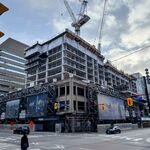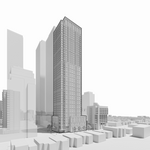urbandreamer
recession proof
^You assume today's suburban sprawl will continue forever. I am talking about a return to the SFH model of a century ago. You could call it new urbanism but I'd call it new suburbanism  Think of the Annex as a suburb--it was in its day. That is the model for density I am proposing that is sustainable in the GTA. A mix of 4 storey walkups, a tight grid of streets and walkable commercial districts mixed with a variety of SFH styles--mostly semis and townhomes. If construction practises returned to those of a century ago using robotic construction techniques, 3D printing etc (a real possibility in the near future), hydrogen-powered vehicles (Toyota is launching a hydrogen-powered car next year) than yes, lowrise would be more sustainable.
Think of the Annex as a suburb--it was in its day. That is the model for density I am proposing that is sustainable in the GTA. A mix of 4 storey walkups, a tight grid of streets and walkable commercial districts mixed with a variety of SFH styles--mostly semis and townhomes. If construction practises returned to those of a century ago using robotic construction techniques, 3D printing etc (a real possibility in the near future), hydrogen-powered vehicles (Toyota is launching a hydrogen-powered car next year) than yes, lowrise would be more sustainable.




